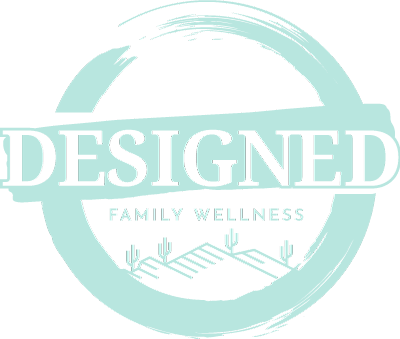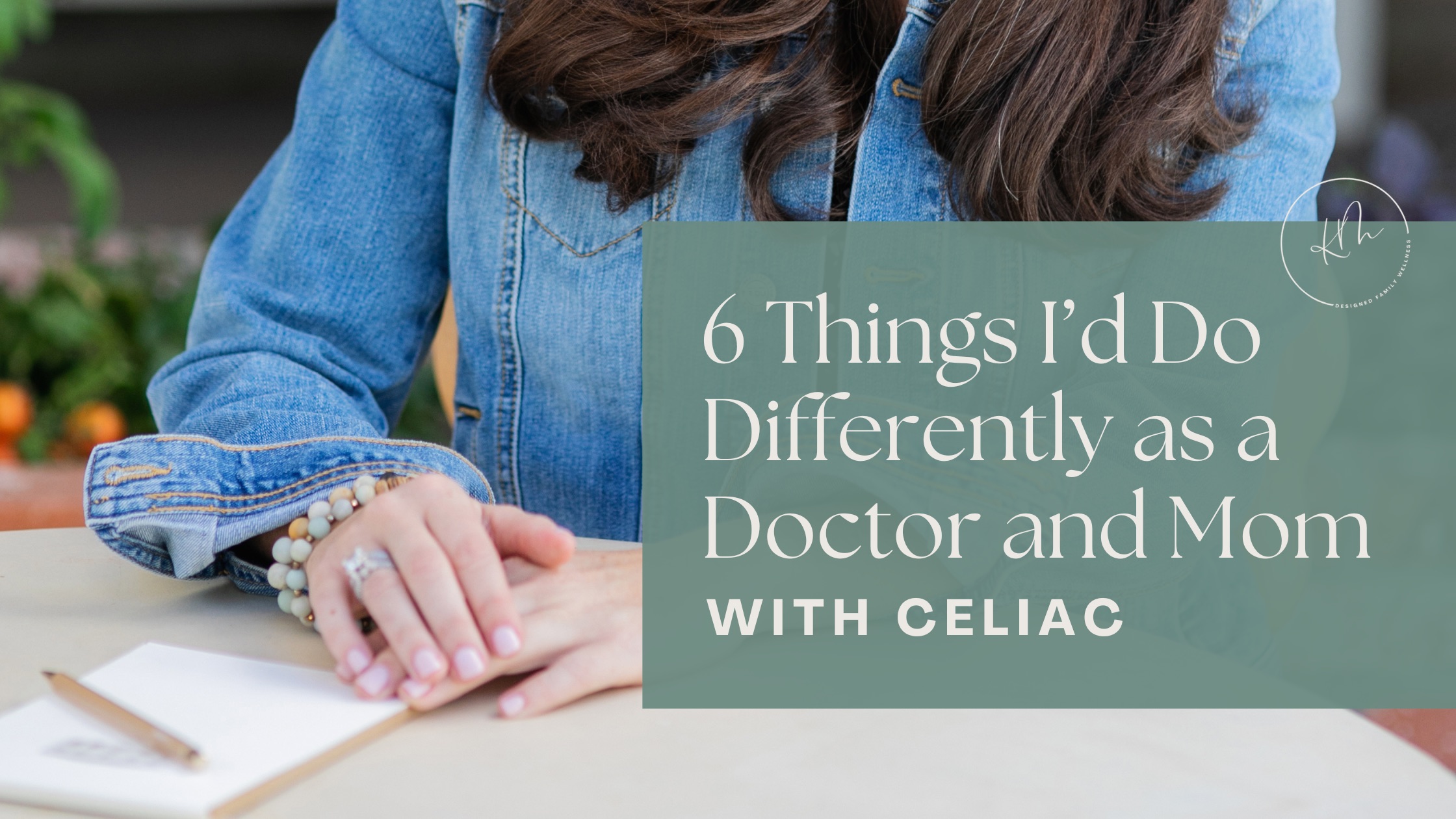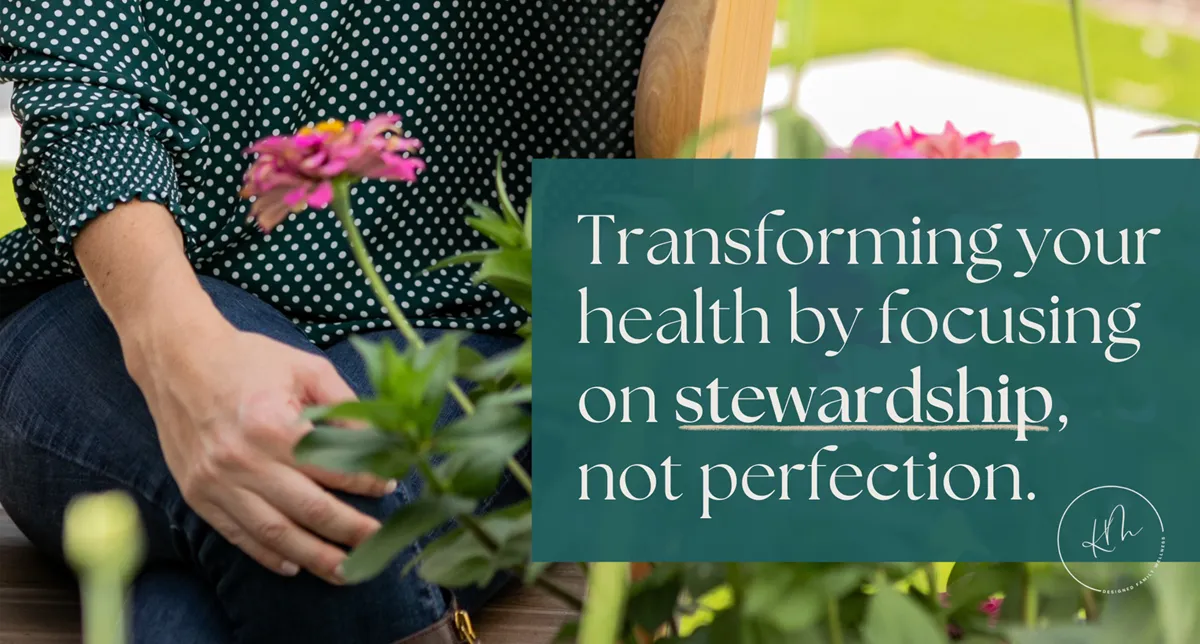Celiac disease can present in so many different ways, from stomach issues to behavioral changes, skin rashes, headaches, and even symptoms mimicking arthritis. Unfortunately, this means it often gets misdiagnosed or dismissed altogether. So where do you even start when treating and managing it?
As a mom and a doctor with celiac disease, I understand how overwhelming it can feel. You’re probably thinking, “How will I ever figure this out?” or “This feels impossible,” while society just views it as a minor food intolerance.
The raw truth is that living with celiac can feel like a full-time job headed straight for burnout– researching every label, every food, and wondering how long it will take to see improvement. Trust me, I’ve been there. I’ve tried nearly every health hack, diet, and supplement in my quest for wellness, and I know firsthand how overwhelming celiac can be. It goes way beyond tummy troubles, and it can feel so frustrating to hear, “Just eat gluten-free,” when this disease is quite literally running the show in and outside of your home.
So, before we go any further, I want you to know that there is hope, no matter how bleak and exhausting it seems at the moment.
Through my journey, I’ve learned key things that could have made my path smoother if I had known them earlier. Here are six key things I would do differently with celiac as a mom and a doctor, knowing what I do now:
1. Go beyond just a gluten-free diet
When I was first diagnosed, I assumed that following a gluten-free (GF) diet was all I needed to do. While going GF is the first step toward healing, it’s really just the beginning.
By the time many people receive a diagnosis, their gut is often severely damaged, leading to widespread inflammation, including in the brain. Healing the gut is essential, and that goes beyond merely cutting out gluten. I would focus more on addressing nutrient deficiencies caused by poor absorption and taking proactive steps to reduce inflammation and repair the gut lining.
2. Be your own advocate in healthcare
In my experience, even many dietitians, nutritionists, naturopaths, and gastroenterologists have a limited understanding of celiac disease. The common advice is to “just eat gluten-free,” but there’s so much more to it— avoiding cross-contamination, recognizing hidden gluten, and understanding the myriad of ways gluten can be listed in ingredients.
I’ve seen too many cases of poor recommendations and misinterpretations of test results. If I could do it over, I would insist on working with professionals who have specific expertise in celiac disease and be even more vigilant in advocating for myself and my family.
3. Recognize that no symptoms doesn’t mean no damage
It’s important to understand that just because someone with celiac disease doesn’t show obvious symptoms, it doesn’t mean their body isn’t suffering.
There’s something known as “silent celiac,” where no noticeable symptoms are present, but significant damage is still occurring in the small intestine. This can show up in other ways, like stunted growth, anemia, or nutrient deficiencies.
Trusting that a food is safe just because there are no immediate symptoms can be misleading. The damage to the intestinal lining is still happening, so vigilance is crucial, even when everything seems fine on the surface.
4. Educate and empower my child from the start
When my child was diagnosed, I was hesitant to draw attention to their condition. I now wish I hadn’t been shy about educating other moms, teachers, and classmates about celiac disease. I can’t tell you how many times I stressed over a pizza party at my kid’s school. Many people don’t realize the severity of even a tiny crumb of gluten for someone with celiac.
I’ve learned that it’s okay to bring your own food to social gatherings and that teaching kids early on how to navigate these situations empowers them to feel confident rather than isolated. Embracing and normalizing this difference within your family from the get-go can help make social situations less daunting and empower your child to keep these lifestyle changes up for themselves.
5. Understand that gluten-free doesn’t always mean healthy
Initially, I thought that anything labeled “gluten-free” was automatically healthier. However, many GF substitutes are highly processed, high in calories, and not necessarily better for overall health.
It’s tempting to rely heavily on these substitutes initially, but I’ve learned to transition to healthier, whole-food options over time. The key is to make these changes gradually to avoid overwhelming yourself or your child. It’s important to give yourself grace during this process—it’s okay to take baby steps.
6. Allow yourself time to grieve and adjust
One of the most challenging aspects of living with celiac disease is the lifestyle shift it demands. It’s normal to grieve the loss of spontaneity— no longer being able to show up at a BBQ, school event, or dinner with friends and eat whatever you want. It changes how you approach vacations, traveling with friends, dining out, and even who you kiss.
This grieving period is natural, and it takes time to adjust. I would remind myself and my child that it’s okay to feel this loss and to take things one step at a time. Giving yourself grace during this period is essential. Over time, you and your kids will become more resilient, and while life will look different, there is so much hope.
Are you or your family looking for answers for celiac disease?
Dealing with celiac disease myself, for my children, as a doctor, and now as an integrative health practitioner has taught me a lot about the importance of self-advocacy. If you’re tired of spinning your wheels managing celiac with little to no results, maybe it’s time to start advocating for your health in a better way.
At Designed Family Wellness, I am dedicated to uncovering the roots so that your and your family’s health trajectory can be changed forever. Book your call below!
Remember that there is hope for healing. You don’t have to feel stuck in a corner on your wellness journey; it just might take a different approach.





